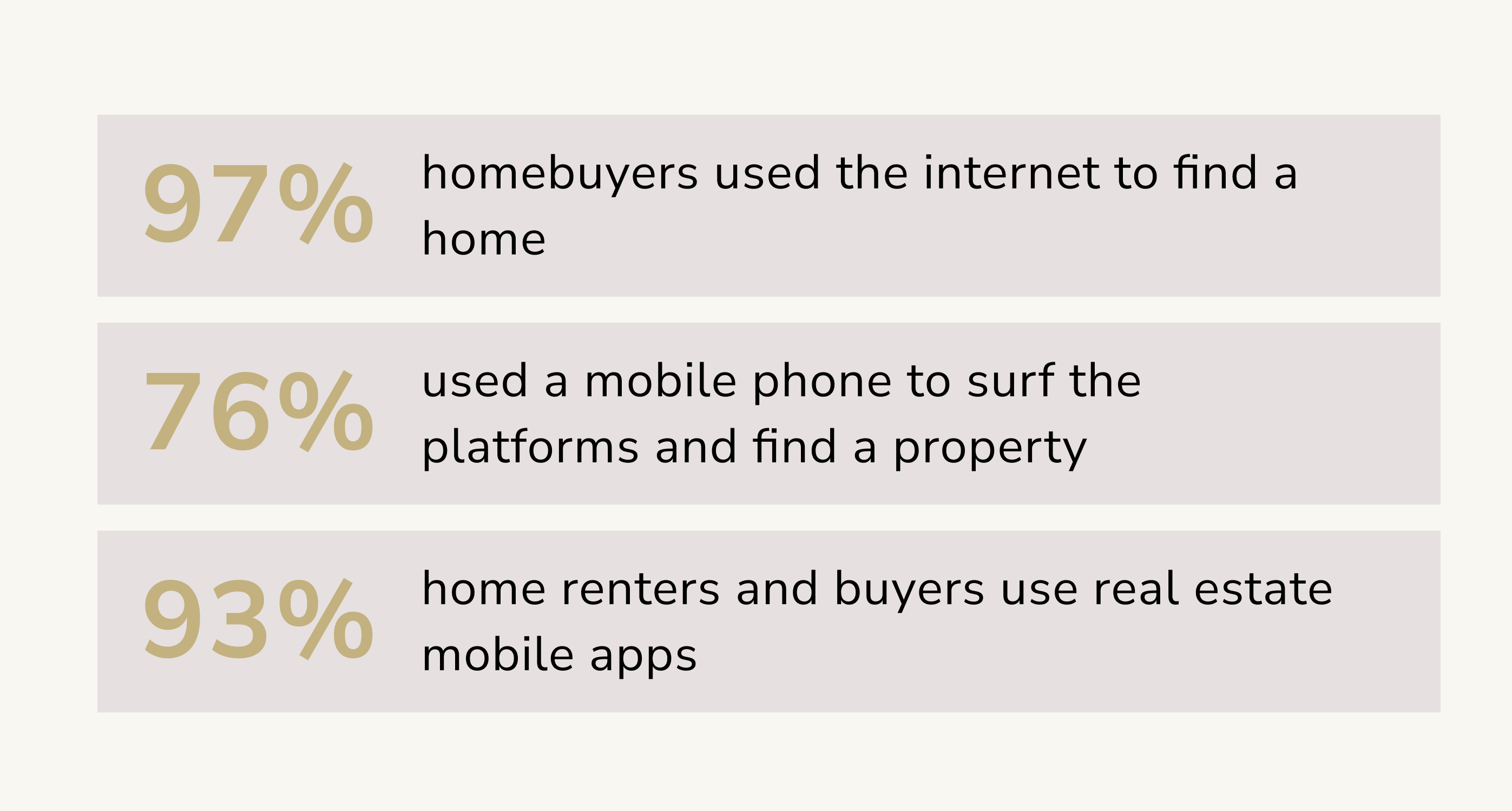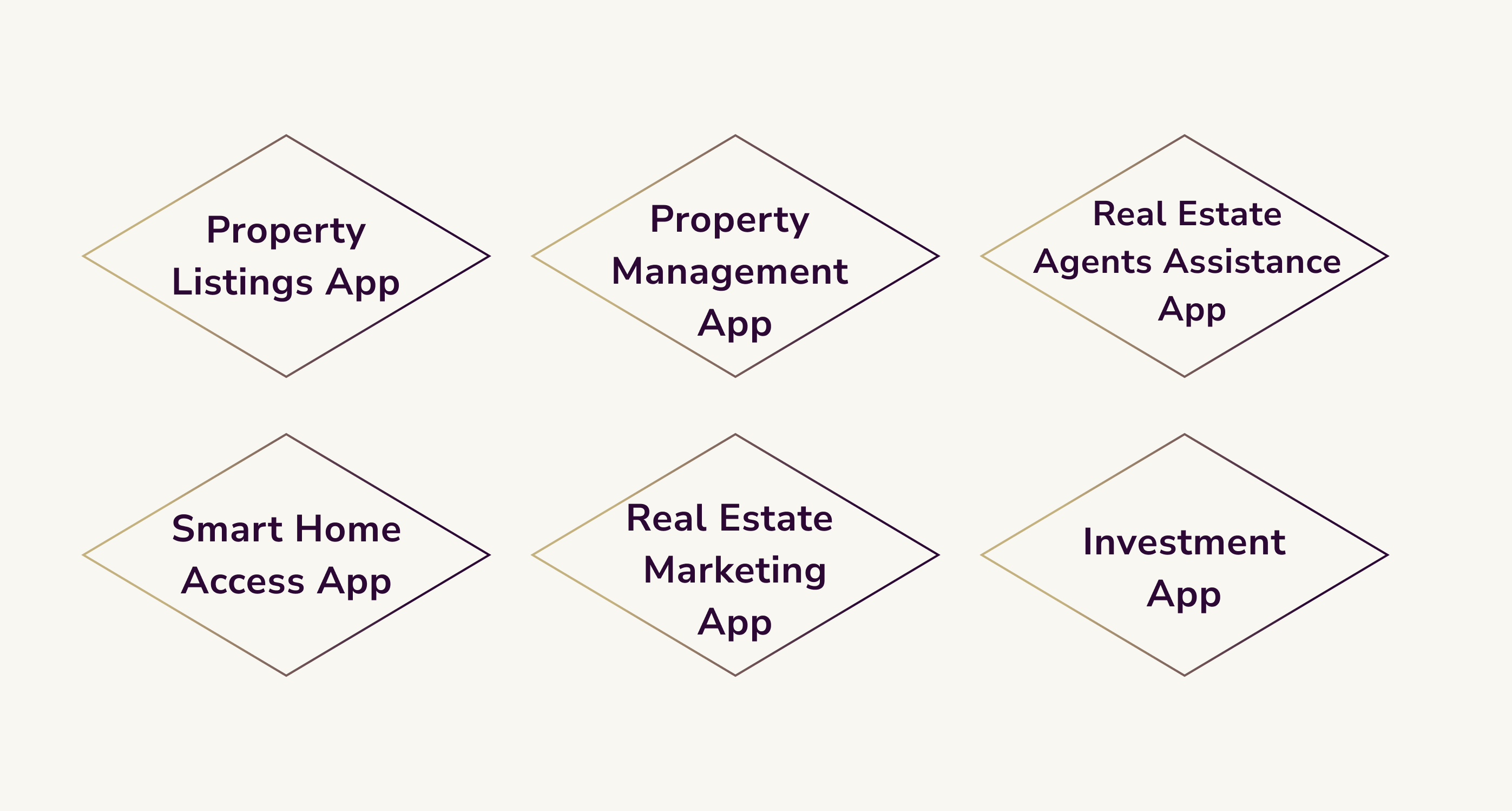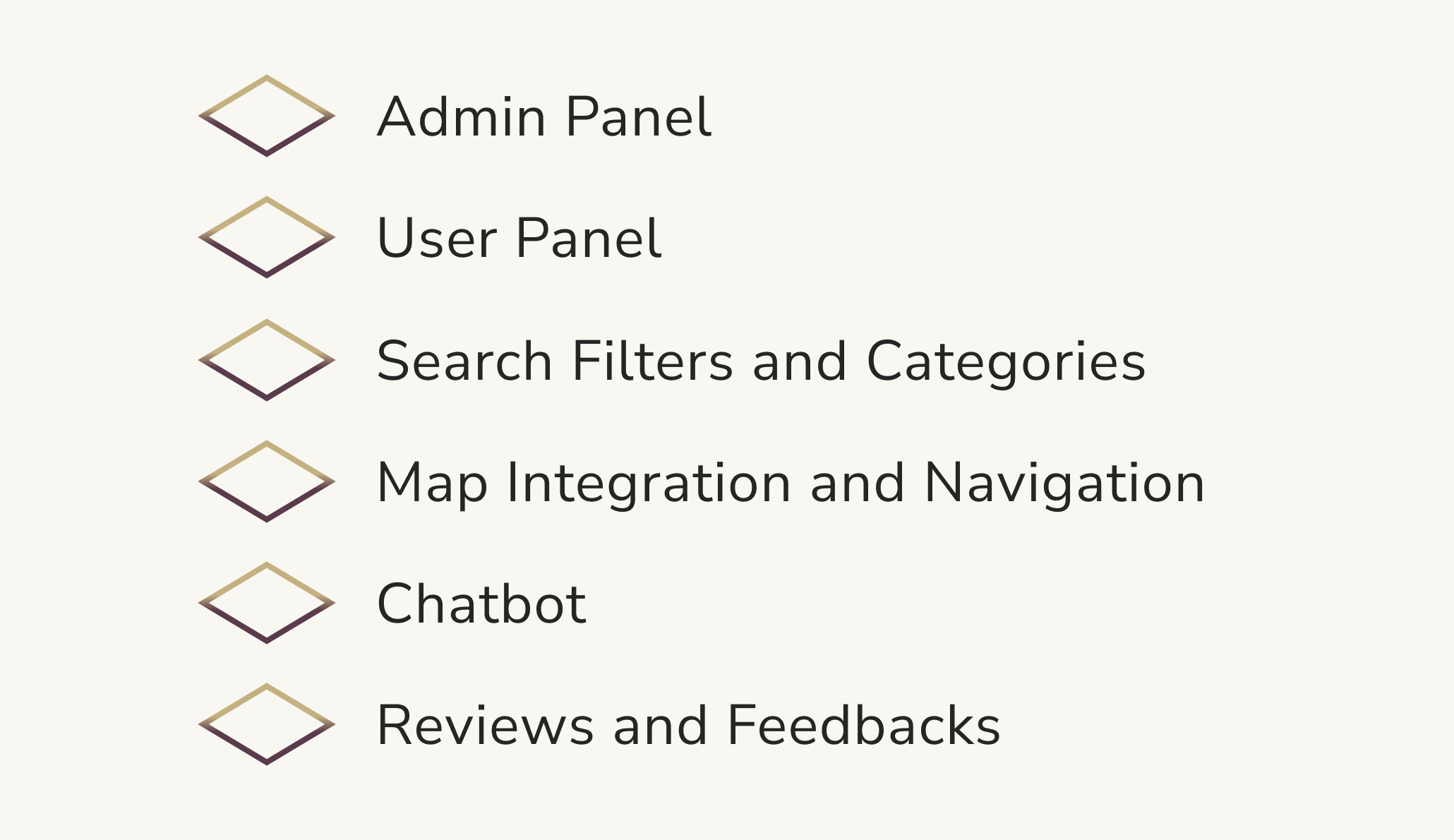Everything You Need to Know about Real Estate Mobile App Development

Have you ever searched for a house not online? What was your impression? We guess it was disappointing and seemed like you would never find a needed property. Until recent times, people had to hire a real estate agent, meet several times to explain what they wanted and keep in touch for several weeks or months to view the accommodation that fit their requirements.
Yet, now, the reality is different and simpler. As per the National Association of Realtors, 97% of homebuyers used the internet to find a home, while 76% used a mobile phone to surf the platforms and find a property. So, if you’re a real estate business or proptech startup, your digital presence is needed as never before, and it’s best to develop a real estate mobile app.

If you still doubt whether a real estate mobile app is a wise idea for investment, let’s dive in and discover the prospects in detail.
Why Does Your Real Estate Business Need a Mobile App
After 2020, online home-buying picks up speed, and there is no stop to its rise. Nowadays, people have all the tools to find a house for rent or purchase online. In 60 percent of cases, they do it without even seeing their property in person.
What is more, 93 percent of home renters and buyers use real estate mobile apps for seeking a property. So, it is a no-brainer that a mobile app is one of a realtor must haves. Here are the major benefits of having a real estate mobile app in 2023:
- Accurate hits on hot prospects. If you’re looking for the target customers “on the street,” you close fewer deals. With a real estate mobile app, you have a connection to an increasingly interested audience that is ready to become your customers.
- More successful sales and deals. Throughout the app, you provide a better customer experience and let your customers constantly interact with agents. It results in more purchases and, thus, more revenue.
- Optimization of the business process. If you are sick and tired because of task managers, operational work, reporting, and any other routine-related work, a real estate mobile app can help you. It ensures that you get increased efficiency and save budget and staff resources at the same time.
- Higher customer loyalty. You can provide your target audience with special offers and loyalty programs via the app. You will only win from it and get an audience that is ready to convert into a trusted client.
- Accurate and advanced analytics. Without a doubt, mobile apps have better analytics opportunities compared to the ones you get when your real estate business is not online. Besides, it will be your personalized analytics, and you will not pay for it - just buckle up and be ready to receive true data about your prospects.
- New opportunities for marketing and reduced cost of advertising. A real estate mobile app allows you to target your leads with in-app ads based on their buying behavior and preferences. Moreover, there will be no need to conduct additional advertising campaigns and allocate a huge budget for them. Unique features and real-time communication with the agents will do it even better than ad campaigns on Facebook or anywhere.
- Brand awareness and increased recognition. The usage of the company logo, fonts, and colors in the real estate mobile app boosts user brand awareness.
However, we should also mention a certain number of drawbacks a real estate mobile app might have:
- Overreliance on technology. Real estate mobile apps should not be used as a substitute for professional advice. Users should be aware of the limitations of real estate mobile apps and should not rely on them solely to make important decisions about their real estate transactions.
- Privacy concerns and potential for fraud. These apps collect a lot of personal information from users (their location, search history, and contact information) so they can be a target for scammers and fraudsters. Serious security measures should be taken to avoid fake listings or stealing of users' personal information.
- Limited access to information. Not all real estate apps provide access to the same information which can limit the options available to users and make it more difficult to find the perfect property.
- Lack of personalization. Using real estate mobile apps can be frustrating for users who are looking for a more personalized experience as these apps offer somewhat standardized experiences.
- Cost of development and maintenance. Last but not least, the development and maintenance of the app might be quite expensive. Although this investment is likely to pay off in the future, this still should be considered if you are planning to digitalize your real estate business.
Types of Real Estate Mobile Apps

Property Listings App
These real estate apps probably first come to mind when we think about house hunting or renting. The property listing apps allow searching for flats and houses based on specific criteria such as address, city, and neighborhood. In most cases, such apps include information about the property and contain some photos.
Smart Home Access App
In the last few years, we have observed a steady trend in digitalization, and it pertains real estate industry as well. People apply smart home technologies in their houses to simplify their routines.
As follows, smart home access apps allow you to find properties with smart home features. Besides, suppose you’ve already rented such a flat or house. In that case, the home automation app will allow you to control heating and air conditioning, close and open windows, enable security systems, and far more.
Property Management App
Property management apps are extremely useful for homeowners and real estate managers responsible for houses. The key purpose of such real estate apps is to provide a general understanding of what is going on with the house or flat. Property managers can check maintenance requests, rent termination, or other real estate-related analytics.
Assistance App for Real Estate Agents
This type of mobile app can be used for many purposes. Most frequently, real estate agents use assistance apps to communicate with customers, evaluate properties, simplify the listing process, and reduce paperwork.
The most popular assistance real estate apps have home valuation and virtual tour features.
A home evaluation is a tedious and monotonous process that most real estate agents try to avoid and do later. It’s not a surprise that startupers decided to automate this process. Apps with home valuation have access to private and public databases and information about past sales and housing trends. It helps predict future home values and determine which factors drive people to buy or rent houses in a particular neighborhood.
Another type of assistance software is one with 3D tours. Real estate agents use these apps to create a more distinct customer experience and facilitate their meeting schedules. It’s much easier to show properties online via virtual tours rather than inviting customers for a live tour.
According to Zillow, the leading real estate marketplace in the US, listings with virtual home tours received 50% more views and were saved more than 60% often. In addition, 25% of recent house buyers confirm that they prefer virtual tours to in-person viewing.
Besides, real estate brokers frequently use scheduling platforms to book meetings for in-person home viewing. The most famous example of such real estate software is Calendly.
Investment App for Real Estate
Investment has always been an aspiring niche for people who want multiple revenues. The real estate industry is no exception. Investors and agents are increasingly interested in software that allows monitoring investment opportunities and investing wisely. The security of these apps is the top priority for founders and developers.
As follows, if you’re not new to real estate or have ever googled it, you probably have heard about DiversyFund and ArrivedHomes.
Real Estate Marketing App
Property selling can be a tough task to perform. Thousands of professional real estate agents make it almost impossible for newbies. Yet, it is only impossible if you do it in an old-fashioned way, posting an ad in a newspaper.
That is why startups developed the real estate marketing solutions niche. Marketing apps help homeowners and real estate agents to sell properties more effectively.
Real Estate Mobile Development: 6 Easy Steps
Find Your Goal and Unique Proposition
Business never starts from an empty space, even the real estate one. You always need a starting point, and it is an idea. 60% of businesses fail in their 3 first years because they lack it. The idea gives clear success benchmarks, notably short- and long-term goals, and diminishes the chances of failure.
So, before rushing into being a businessperson, think carefully about it. For this, you’ll need to identify the problem you will solve and the group of people who are suffering from this issue.
Only then you can make a step further on the star way — a step toward the unique proposition. The market is swarming with propositions, and you’ll need to stand out from this crowd. Ask what makes your real estate mobile app different. Is it a problem you’re solving, a feature, or advantageous subscription plans? Why do users have to trust in you and your idea?
After you’re done with the goal and unique proposition, be ready to dive deeper into the competitor's ocean.
Conduct a Market Research
The biggest mistake you can make is to neglect your competitors. It is important to study the market you plan to enter. In this way, you will know the game's rules and can play fair but win.
The information you will learn about the market in general and competitors will give you valuable tips on how to stand out and market your real estate mobile app. Besides, it will give a gist of what users like. For example, by viewing the statistics about active users, you will understand what features are essential and which user interfaces are more appealing.
Moreover, the best way to research your competitors is to review their social media, solutions, and feedback from their users. It will make a huge impact on how you position your business and make a market offer.
List the Features
It’s early to call it a day when you haven’t come up with the list of features for a real estate mobile app. However, do not opt for more in the very beginning and make a small list of only important features. In the software world, such an approach to creating apps is called a minimum viable product (MVP) development.
It will help you include basic features that perform the main function of your real estate mobile app. As a great bonus, you will be able to save money in the beginning, get to the market more quickly, test your solution, and adjust the product according to the reviews of early adopters.
We will talk about the basic features of real estate mobile apps a bit later in this article, so stay tuned and don’t miss this important part of real estate mobile application development preparation!
Find a Proper Software Development Team
With the complete feature list, you’re ready to look for the proper software development partners. They will likely ask for several meetings to better study your idea and requirements.
As a result of these meetings, you will receive a proposal and estimate for your real estate mobile app development.
A small tip here: do not choose the team whose price is the cheapest because estimates can be adjusted over time and increased. Choose the real estate mobile app development company that is pleasant to work with, and you will win in the long run.
Prepare for Spendings
We will not shock you if we say that real estate app development is not cheap. Nonetheless, it’s up to you to choose the price. In order to do it, take into account the following information:
- Location of the custom mobile app development company. The rates vary depending on the region. However, the quality of services is also different in different areas.
- The number of features. The more you’re looking to implement, the more expensive the estimate will be and the longer it will take.
- Size and seniority of the development team.
- The type of engagement/contract.
The real estate mobile app can cost from $50,000 to $500,000. You can only know the exact price and timeline after the Discovery Phase.
Do Not Forget about Marketing and Advertising
Building a cool real estate mobile app is only half of success because it will be no good if you have no users. So, the most important thing in any business is to let people know that you have a great product for them. And this is where the marketing comes in hot when we talk of winning real estate!
Advertising will make your real estate app visible and show how many people are actually interested in using your software. Besides, marketing will mean more projects, more customers, more invitations to events, and thus, more money and growth opportunities.
So, think about the marketing part when you only start building the real estate mobile app. This is a highway to monetizing it!
Real Estate Mobile App Features

Let's see what should one keep in mind in the process of mobile app development for real estate.
Admin Panel
The number of actions performed via the administrative panel is the broadest. It allows admins to define who can post and delete property listings, manage listings, and receive feedback and repost from real estate mobile app users.
The admin panel is a must for any app features list. What is cool about it, you don’t have to build an admin panel from scratch in almost all cases. There is a variety of customizable solutions that can be integrated and adjusted according to your design.
User Panel
Users panel is also an important item on the list of your mobile app features. Firstly, you should think about how you will onboard new users. This process has to be as simple as possible. No one likes long and unnecessary “sign-up” forms.
So, you can opt for three ways to simplify the authorization of your users:
- phone verification
- email authorization
- authorization via social media
Still, you can combine all of these authorization methods. Users will like the convenience and flexibility you’ve provided them with.
The next step for creating a nice user panel is to set up easy-to-use user profiles. Keep in mind that different audiences can use your real estate mobile app. At first, you can focus on the three most frequent groups of users of the real estate apps, notably ones who seek a property, sellers, and real estate agents.
As follows, you have to develop different profiles for different target audiences. For instance, the profile for users who search for a house will not be similar to the broker’s profile. A buyer or renter should be able to access and filter listings, save the ones they like the most, and make a renting inquiry.
At the same time, a real estate agent can post and see their own property listings, schedules, numbers of views per property, and promotion plans.
However, some real estate mobile apps provide similar features to all users, such as messaging, meeting scheduling, or access to maps.
Search Filters and Categories
If you have ever looked for an apartment to rent, you probably know what the most cumbersome part of the whole process is. Right, we’re talking about finding the proper house.
Therefore, users will thank you for simplifying their lives if you implement filters and categories in your real estate mobile app feature list. The basic filter categories most real estate apps have are price, location, house/apartment size, and amenities. But, be creative and think of categories that may significantly influence your users' choices. Include filters connected to the likelihood of natural disasters, the number of playgrounds in the neighborhood, and the crime rates.
Map Integration and Navigation
We bet you’ve never seen a real estate app without maps integration. Fortunately, you don’t need to invent your own mapping solution, as there are hundreds of off-the-shelf map solutions that your software development partner can integrate. The most popular integrations are, of course, Google Maps and Mapbox.
Besides house location, your real estate mobile application can display other property-wise information such as nearest stores, food markets, kindergartens and schools, crime rates, and different infrastructure-related data. And don't forget about the importance and need for a realtor safety app.
Chatbot
Users cherish the opportunities when they can be closer to the platform owners and get help directly on the real estate mobile app. So, if you’re still thinking about whether to provide instant communication, forget about hesitations and do it.
Users are more likely to send messages in chatbots than call real estate agents directly. By making them call, you lose their interest and complicate their property search.
Moreover, a chatbot can provide several options for users to choose from, notably online chat, live consultation with the realtor, and callback option.
Reviews and Feedbacks
Visiting an online shop, you’ll likely buy a product with at least several reviews than another one with no feedback. The same rule goes for real estate. Renters choose apartments with good reviews. That's why this one should definitely be on your mobile app features list.
In this case, feedback and reviews work as a factor that influences the decision. From them, users get more information about homeowners, neighbors, and locations.
What’s Important in a Real Estate Mobile App
Databases
To encourage trust in your real estate mobile app, you should have a considerable database consisting of information about properties. Although you can partner with real estate agencies to get these databases, there is a wiser way to do it.
Your software development partner can use third-party apps, such as kvCORE, BoomTown, or iHomeFinder, different APIs, and multiple listing services (MLS) to streamline the information flow and configure it according to the format of your real estate mobile application.
Proper Tech Stack
Obviously, you don’t want a mediocre real estate mobile app. And to have a competitive one, you will need to implement a powerful backend. Here is a list of some helpful tools that real estate app developer might use to make your real estate mobile app a win-win:
- languages for Android development: Java or Kotlin
- languages for iOS real estate development: Objective C or Swift
- cloud storage for property listings: Amazon S3, Google Cloud Storage, or Azure Blob Storage
- custom maps integrations: Google Maps API or Mapbox API
- details on the nearby neighborhoods and infrastructure data: Google Places API
- demographic data and information about specific districts: Spatial Neighborhood API
- tools to normalize MLS data flows: iHomeFinder, BoomTown, SimplyRets, or Spark APIs
- frameworks to manage the saved properties: Realm or CoreData
- Facebook authorization integration: Facebook SDK
Take this into account and create your real estate development team structure accordingly.
Applying Cutting-Edge Technologies
Talk to real estate app developers about implementing cutting-edge technologies that would clearly determine your ability to provide value to users. The advantage of using emerging tech in your real estate mobile app is that it attracts new customers.
Artificial Intelligence for Automation
The first technology frequently used in real estate mobile apps is artificial intelligence (AI) for task automation. For instance, you can optimize your contact channels and make them available to users 24/7. Users will instantly get responses, and the error rate will be minimal because of AI automation.
Besides, automated chats and service desk assistance go beyond the capabilities of common chatbots. Deloitte says that “these assistants would be built for purpose, have a rich set of capabilities, and be integrated into the end-to-end process landscape of the enterprise.”
Property Reviews and Customization with AR/VR
AR/VR for property viewings is the next trend implemented in proptech. The main reason users like implementing AR/VR in real estate mobile apps is that they eliminate the time and expenses of visiting numerous properties. So, VR is responsible for remote virtual tours of properties when selecting, while AR helps customize homes according to personal preferences. So if you had an idea for a real estate VR app, you might win the market!
Real Estate Mobile App Security with Blockchain
Although it is hard to make a connection between blockchain technologies and the real estate industry, many founders apply it in their real estate mobile apps. Blockchain has wide implications for commerce, including proptech.
For instance, it can be used to check encrypted transactions and verify whether no tampering influences the financial records in the app. Blockchain technology also ensures that such crucial documents as property titles can be saved securely. Moreover, if a real estate app development company builds your real estate mobile app for landlords, blockchain will prove useful and allow them to market and sell their stake parts in specific holdings. However, the range of cases where you can apply this technology is never-ending.
Advanced Productivity with IoT
Finally, you have probably seen or used apps for smart homes, and all of them are powered by the Internet of Things (IoT). It is becoming one of the fanciest trends in real estate management.
As follows there are several ways how IoT can empower your real estate mobile app, notably, it can advance productivity, facilitate and streamline operations, and boost customer engagement. Thus, you can use IoT to help real estate agents unlock properties for viewing remotely.
Improved Data Processing with Big Data
Usually, real estate mobile apps keep immense quantities of information about properties, consumer preferences, and agent operations. To streamline data processing, founders opt for big data. It helps store, deal with, and gather information about application trends and user likings. Furthermore, real estate mobile apps that use machine learning models can predict rate and property metrics changes with almost 80% accuracy.
Conclusion
Real estate mobile app development requires clear goals, thorough planning, and an accurate business strategy. Although heavyweights like Rental.com and Zillow have occupied a huge part of the realty market and set the game’s rules, the niche is ready to take on new members. Hope this convinced you that mobile apps are true real estate agent must-haves.
If you want to attract huge audiences of millennials and youth in real estate, you need to speak their language. And their language is mobile. So look through real estate app development companies and choose the one that will do the job for you!

Roman Zomko
Other articles